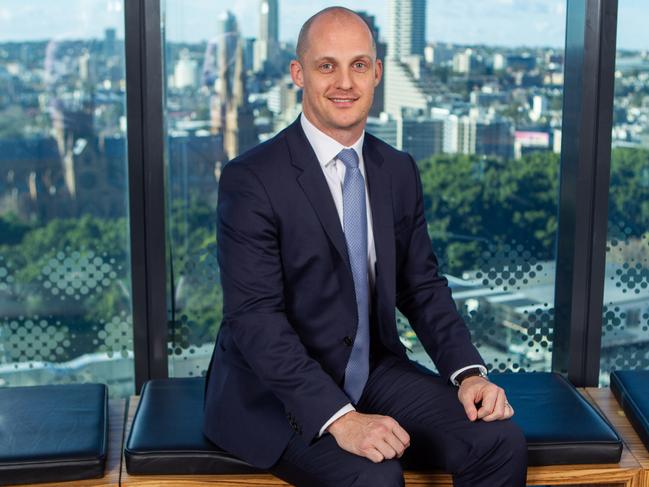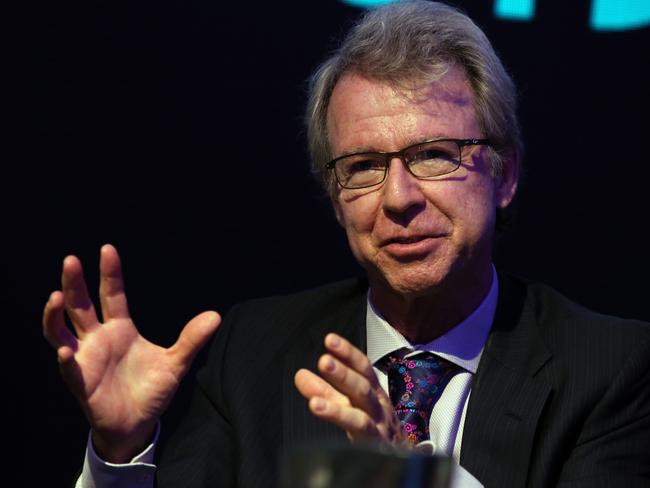Coronavirus fuels talk among economists a recession looms
A quick “V-shaped” economic recovery seems a distant dream and economists fear Australia is heading for a coronavirus-induced recession.
Business
Don't miss out on the headlines from Business. Followed categories will be added to My News.
A “V-shaped” recovery in the Australian economy looks increasingly unlikely as the spread of coronavirus takes a heavy toll, heightening fears a recession looms, analysts say.
As the stock market resumed its downward slide on Wednesday, national accounts showed the economy grew faster than expected last quarter but at a rate still lagging the long-term average.
Growth in the three months to December remained subdued, economists said, and bushfires and the Covid-19 outbreak had since delivered a painful blow.
While consumer spending picked up, business investment fell heavily, the Australian Bureau Statistics said.
A fault line also emerged as states in the south and west contracted. State final demand — a limited measure as it excludes net exports — retreated in Victoria, South Australia, Western Australia and Tasmania, while New South Wales, Queensland and both territories grew.

Nationally, gross domestic product climbed 0.5 per cent, seasonally adjusted, compared with an upwardly revised clip of 0.6 per cent the previous quarter. That lifted the annual rate to 2.2 per cent.
Economists had expected quarterly growth of 0.4 per cent for an annual rate of 2 per cent.
The national accounts were released as the share market again swung into reverse, quickly surrendering its modest gains of the previous day.
At the close, the benchmark ASX 200 index was down 1.7 per cent. It has now fallen 11.7 per cent — cutting $250.1 billion from the market’s value — since hitting an all-time high on February 20.
The slide on Wednesday followed a late sell-off on Wall Street after the US Federal Reserve sent a shockwave through the market with an unexpectedly deep rate cut.
Shares in the major banks weighed heavily here, extending a late-session slide the previous day after the Reserve Bank cut the cash rate by 0.25 percentage points.
Investors have retreated from the banks since all four, under pressure from a federal government anxious about the economic outlook, announced they would pass on to mortgage customers the full cut.
Economists on Wednesday said the outlook was still concerning and there was a growing risk Australia was sliding into its first technical recession — two consecutive quarters of contraction — in almost 30 years. ANZ senior economist Felicity Emmett said the latest national accounts were already “very dated” given the impact of coronavirus.

“A V-shaped recovery looks much less likely now, and with the economic impact of the coronavirus broadening … the risk of a recession has increased sharply,” she said.
Analysts at investment bank Morgan Stanley said the economy had “stabilised” the past quarter, but they still expected a sharp slowdown this quarter. “We expect growth to be flat at best in Q1, and see increasing risk of moving into a scenario of negative growth as global and domestic disruption increases,” they said in a research report.
JP Morgan analyst Ben Jarman said the latest GDP numbers at least signalled Australia was not already mired in recession.
“For now, the RBA’s problem is … that the economy has run below potential for sufficiently long that the labour market has become vulnerable to external shocks, such as that represented by Covid-19,” Mr Jarman said.
AMP Capital chief economist Shane Oliver said that if the virus were not contained soon, “there is a rising risk of recession”.
